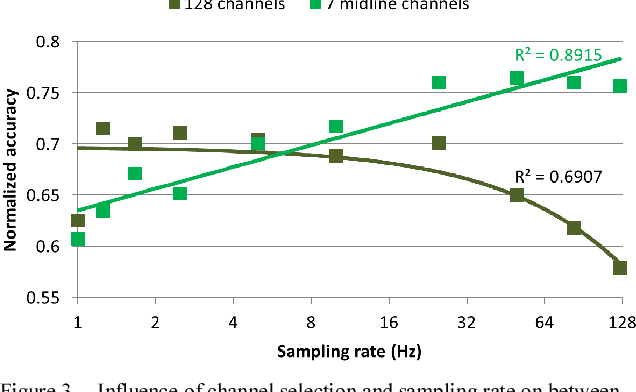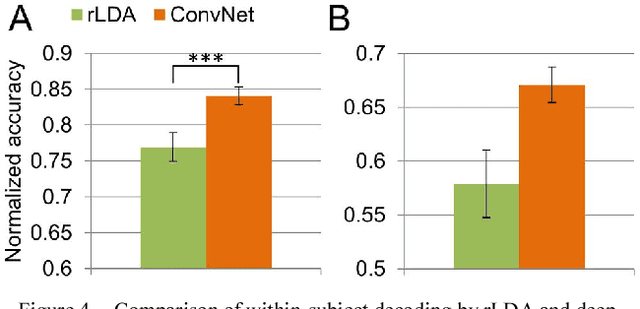Deep Transfer Learning for Error Decoding from Non-Invasive EEG
Paper and Code
Jan 10, 2018



We recorded high-density EEG in a flanker task experiment (31 subjects) and an online BCI control paradigm (4 subjects). On these datasets, we evaluated the use of transfer learning for error decoding with deep convolutional neural networks (deep ConvNets). In comparison with a regularized linear discriminant analysis (rLDA) classifier, ConvNets were significantly better in both intra- and inter-subject decoding, achieving an average accuracy of 84.1 % within subject and 81.7 % on unknown subjects (flanker task). Neither method was, however, able to generalize reliably between paradigms. Visualization of features the ConvNets learned from the data showed plausible patterns of brain activity, revealing both similarities and differences between the different kinds of errors. Our findings indicate that deep learning techniques are useful to infer information about the correctness of action in BCI applications, particularly for the transfer of pre-trained classifiers to new recording sessions or subjects.
 Add to Chrome
Add to Chrome Add to Firefox
Add to Firefox Add to Edge
Add to Edge